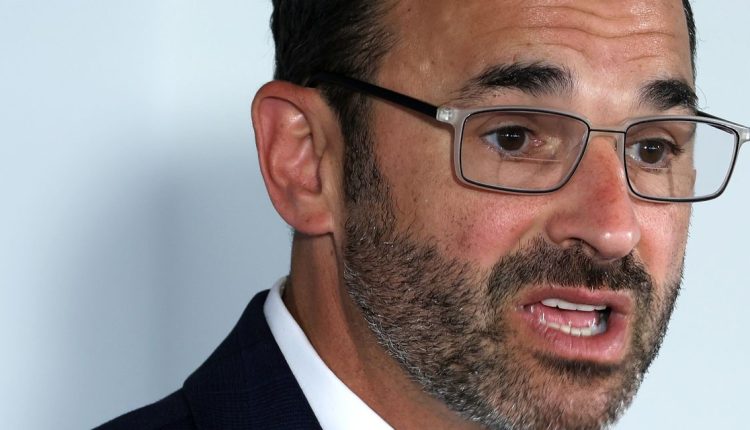The IRS is hitting pause on new claims for a pandemic tax credit ‘overtaken by aggressive promoters’
The Internal Revenue Service will stop processing new claims on a pandemic-era credit for businesses that has become prone to questionable claims and hard-sell tactics from some companies that say they can land payouts for clients.
The tax agency said Thursday that its moratorium on processing new employee retention credit claims will continue at least through the end of 2023.
Payouts for valid claims already submitted to the IRS will continue to be made, but at a slower pace to allow the agency time to give the claims a hard look — and possibly an audit. The IRS is also establishing a process to allow taxpayers to withdraw claims and return sums that were improperly paid out.
“The IRS is increasingly alarmed about honest small business owners being scammed by unscrupulous actors, and we could no longer tolerate growing evidence of questionable claims pouring in,” IRS Commissioner Danny Werfel said in a statement Thursday.
The tax agency has received 3.6 million claims for the credit since it was launched in 2020. Of that number, 600,000 claims have come in during the last three months, Werfel said. The IRS has paid out approximately $230 billion for the claims so far.
Thousands of claims are being referred for audits, the IRS said. Through July, IRS criminal investigators have opened up more than 250 probes into claims totaling more than $2.8 billion.
“Today, far from the height of the pandemic in 2020 and 2021, we believe we should see only a trickle of employee retention claims coming in. Instead we are seeing a tsunami,” Werfel told reporters.
The credit was part of the $2.2 trillion CARES Act of March 2020, the first major pandemic relief that also authorized the first of three rounds of stimulus checks, extra unemployment benefits and more.
The employee retention credit, a tax-code reward for businesses that kept staff on during the worst days of the pandemic, paid up to $26,000 per employee. The time window is for qualified wages the business paid from mid-March 2020 to the end of 2021, the IRS said.
But eligibility rules are complex. Some businesses have heavily advertised their ability to push claims through the IRS — for a fee. Critics say these promoters are “mills” that churn out faulty claims for tax money.
The surge in applications for employee retention credit is happening because the credit “has been overtaken by aggressive promoters. The ads are everywhere. The program has become a centerpiece for unscrupulous marketing that profits from pushing taxpayers to claim credits that they may not be eligible for,” Werfel said.
Last week, the IRS announced a new round of crackdowns on wealthy tax cheats and businesses that skirt tax laws.
Organizations connected to tax preparation supported the news. The American Institute of CPAs “has been warning CPAs and taxpayers of dishonest credit mills attempting to take advantage of the ERC,” said Barry Melancon, the organization’s president and CEO.
“Today’s announcement by the IRS makes clear that they are listening by sending a strong message to these unethical credit promoters and offering meaningful relief to small businesses acting in good faith.”
Pat Cleary, president and CEO of the National Association of Professional Employer Organizations, a trade group for businesses engaged in services like human resource and tax administration, said: “This is a step in the right direction for small businesses that have waited months, or in some cases, years, for their deserved [employee retention credit] monies.”
“We hope the IRS can expeditiously clear the backlog of legitimate ERTC claims, so that the thousands of small businesses still waiting can get the money they are entitled to,” Cleary said.
Read the full article here

